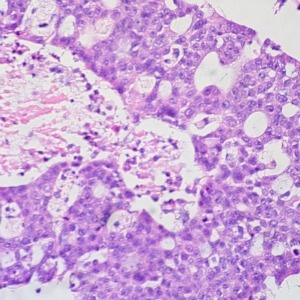Number of GP referrals for suspected cancer up 12% in one year

Efforts to boost early detection has seen a 12% increase in suspected cancer referrals from Welsh GPs in the past year.
The Welsh Government said investment to support early diagnosis meant there were more than 8,000 referrals from GPs in 2015/16.
Over the past five years, the report pointed to a ‘huge increase’ in urgent GP referrals, of 56%.
Yet too many patients are still diagnosed through the emergency route, the the Welsh Government’s annual cancer report warned.
It went on to outline a range of measures to boost early detection further, including increasing patient awareness, improving access to GPs and rapid access to diagnostic tests.
Programmes already in place include new referral routes for patients with non-specific systems and automatic CT referral for patients with suspicious chest X-ray results.
The number of new cases of cancer is rising by around 1.5% a year in Wales.
Although mortality rates are starting to drop, the report says changes in cancer incidence and a growing elderly population has led to a 7% increase in cancer-related deaths.
A Welsh Government spokesperson said they had expected to see a rise in referrals for suspected cancer from GPs after NICE lowered the threshold in 2015.
‘More people are being referred, at a lower threshold of risk, in order to detect a greater number of cancer at earlier stages.
‘There are however other reasons for an increase in referrals, including a national focus on earlier detection of cancer and our growing, ageing population.’
But they added that far too many people are still being diagnosed through other routes.
‘Our refreshed Cancer Delivery Plan highlights action that NHS Wales is taking – including raising public awareness of symptoms, improved referral practices among GPs and better access to diagnostic testing – to ensure wherever possible cancer is detected at the earliest possible stage.
‘Over time we expect this to reduce the number of patients diagnosed on the outside of the urgent suspected cancer pathway.’
GPC Wales chair Dr Charlotte Jones said: ‘The early detection of cancer as a priority for GPs is not a new one, with practitioners using their judgement to refer patients who exhibit symptoms.’
But she added that for patients to gain faster access to specialist assessment where it is needed ‘access to GP services is crucial’ and therefore workload issues facing Welsh GPs needed to be addressed.
She said: ‘In addition, GPs need timely access to the requisite diagnostics that a patient needs and have raised concerns about the time to treatment that patients experience, even after an urgent referral has been sent.’
Visit Pulse Reference for details on 140 symptoms, including easily searchable symptoms and categories, offering you a free platform to check symptoms and receive potential diagnoses during consultations.









